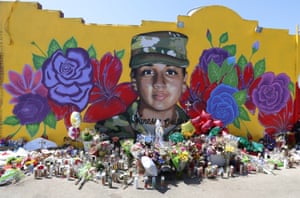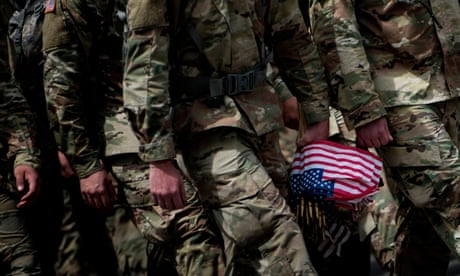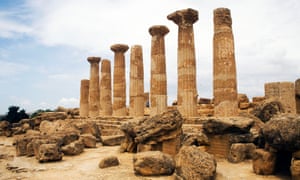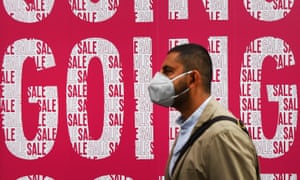Phil Heidenreich
2020-07-07

© Global News Alberta NDP Indigenous Relations Critic Richard Feehan speaks at a news conference in Edmonton on July 6, 2020.
Members of Alberta's official Opposition and some Indigenous leaders have renewed calls for Premier Jason Kenney to fire his speechwriter over a 2013 essay that was critical of how Indigenous issues are framed in Canada, and which argues the narrative around residential schools amounts to a "bogus genocide story."
"Today I asked the premier to take these calls seriously and remove Paul Bunner. He ignored me," Alberta NDP Indigenous Relations Critic Richard Feehan said at a news conference in Edmonton on Monday.
"Paul Bunner enjoys a highly-paid position of influence in our province as one of the premier's closest collaborators," he said. "Paul Bunner harbours a profound hatred and contempt for Indigenous people.
"Why won't the premier confront the racism in his own office today? This is shameful. Paul Bunner must be fired immediately."
Kenney has previously said that while he has not read the article in question, he has seen excerpts from it and that he fundamentally disagrees with them. However, in an interview with Global News last week, the premier said that although Bunner may have written things over the years that he disagrees with, "in virtually every product he's prepared for me, there is a deliberate effort to recognize the nobility of the First Nations."
Bunner has not spoken publicly since people began calling for his removal. Global News has twice attempted to reach him through the premier's office but not received a response to requests for interviews or statements.
Treaty 8 Grand Chief Arthur Noskey also spoke at Monday's news conference and said that he and other chiefs are "amazed at the level of disrespect brandished by Premier Kenney, who continues to employ an individual who has published anti-First Nations views that are harmful, divisive, dehumanizing and racist to say the least."
"[Bunner's essay] demeans First Nations' long fight for treaty and Aboriginal rights and goes on to disparage residential school experiences and survivors," he said. "This article in its entirety is unconscionable.
"How can Premier Kenney know about this article and overlook the harm it continues to cause... [his] acceptance of these articles demonstrates nothing but racism."
Noskey said he and other chiefs want to see Bunner removed from his current role and not be hired in any capacity by the government.
Despite Kenney vocalizing his disagreement with some of Bunner's writing, Noskey said "actions speak louder than words."
While a number of pieces Bunner has written over the years have come under scrutiny in recent weeks, an essay titled "The 'Genocide' That Failed," published in a right-wing online publication called the C2C Journal in 2013, has been at the centre of the criticism.
A spokesperson for Indigenous Relations Minister Rick Wilson told Global News that Bunner recently met with Wilton Littlechild, the former Grand Chief of the Confederacy of Treaty Six, for a three-hour meeting that included "honest and forthright dialogue."
He said the meeting, which took place in Maskwacis, was set up by Wilson.
Global News has attempted to reach out to Littlechild via the Confederacy of Treaty Six and Bunner through the premier's office for their thoughts on the meeting.
Adam North Peigan, the president of the Sixties Scoop Indigenous Society of Alberta, said Monday that as someone who represents those "directly affected by the holocaust of the residential schools," he is troubled by how the premier has dealt with recent criticism of Bunner's writing.
"Paul Bunner's attitude is what reinforces the attitude of privilege towards the first peoples of this land we now call Canada to the point of denying the atrocities of this assimilation," he said, noting that the Blackfoot Confederacy also recently called for Bunner to be removed.
READ MORE: Blackfoot Confederacy calls for Alberta premier to fire speechwriter over residential school comments
Noskey suggested he wanted Kenney's UCP government to support the United Nations Declaration on the Rights of Indigenous Peoples and to "acknowledge that we are people, human beings, with rights --not only human rights, but inherent and treaty rights."
"The exploitation of our land and resources is constant," he said.
READ MORE: UCP introduces bill, $1 billion would support First Nations economic investments
When asked about past comments the Kenney government has made about being partners in prosperity with Indigenous people, Noskey said he does not believe such a partnership is in place.
"I know that the billion-dollar Indigenous fund was promised... but I think that's to the big corporations that are out there," he said
Members of Alberta's official Opposition and some Indigenous leaders have renewed calls for Premier Jason Kenney to fire his speechwriter over a 2013 essay that was critical of how Indigenous issues are framed in Canada, and which argues the narrative around residential schools amounts to a "bogus genocide story."
"Today I asked the premier to take these calls seriously and remove Paul Bunner. He ignored me," Alberta NDP Indigenous Relations Critic Richard Feehan said at a news conference in Edmonton on Monday.
"Paul Bunner enjoys a highly-paid position of influence in our province as one of the premier's closest collaborators," he said. "Paul Bunner harbours a profound hatred and contempt for Indigenous people.
"Why won't the premier confront the racism in his own office today? This is shameful. Paul Bunner must be fired immediately."
Kenney has previously said that while he has not read the article in question, he has seen excerpts from it and that he fundamentally disagrees with them. However, in an interview with Global News last week, the premier said that although Bunner may have written things over the years that he disagrees with, "in virtually every product he's prepared for me, there is a deliberate effort to recognize the nobility of the First Nations."
Bunner has not spoken publicly since people began calling for his removal. Global News has twice attempted to reach him through the premier's office but not received a response to requests for interviews or statements.
Treaty 8 Grand Chief Arthur Noskey also spoke at Monday's news conference and said that he and other chiefs are "amazed at the level of disrespect brandished by Premier Kenney, who continues to employ an individual who has published anti-First Nations views that are harmful, divisive, dehumanizing and racist to say the least."
"[Bunner's essay] demeans First Nations' long fight for treaty and Aboriginal rights and goes on to disparage residential school experiences and survivors," he said. "This article in its entirety is unconscionable.
"How can Premier Kenney know about this article and overlook the harm it continues to cause... [his] acceptance of these articles demonstrates nothing but racism."
Noskey said he and other chiefs want to see Bunner removed from his current role and not be hired in any capacity by the government.
Despite Kenney vocalizing his disagreement with some of Bunner's writing, Noskey said "actions speak louder than words."
While a number of pieces Bunner has written over the years have come under scrutiny in recent weeks, an essay titled "The 'Genocide' That Failed," published in a right-wing online publication called the C2C Journal in 2013, has been at the centre of the criticism.
A spokesperson for Indigenous Relations Minister Rick Wilson told Global News that Bunner recently met with Wilton Littlechild, the former Grand Chief of the Confederacy of Treaty Six, for a three-hour meeting that included "honest and forthright dialogue."
He said the meeting, which took place in Maskwacis, was set up by Wilson.
Global News has attempted to reach out to Littlechild via the Confederacy of Treaty Six and Bunner through the premier's office for their thoughts on the meeting.
Adam North Peigan, the president of the Sixties Scoop Indigenous Society of Alberta, said Monday that as someone who represents those "directly affected by the holocaust of the residential schools," he is troubled by how the premier has dealt with recent criticism of Bunner's writing.
"Paul Bunner's attitude is what reinforces the attitude of privilege towards the first peoples of this land we now call Canada to the point of denying the atrocities of this assimilation," he said, noting that the Blackfoot Confederacy also recently called for Bunner to be removed.
READ MORE: Blackfoot Confederacy calls for Alberta premier to fire speechwriter over residential school comments
Noskey suggested he wanted Kenney's UCP government to support the United Nations Declaration on the Rights of Indigenous Peoples and to "acknowledge that we are people, human beings, with rights --not only human rights, but inherent and treaty rights."
"The exploitation of our land and resources is constant," he said.
READ MORE: UCP introduces bill, $1 billion would support First Nations economic investments
When asked about past comments the Kenney government has made about being partners in prosperity with Indigenous people, Noskey said he does not believe such a partnership is in place.
"I know that the billion-dollar Indigenous fund was promised... but I think that's to the big corporations that are out there," he said











